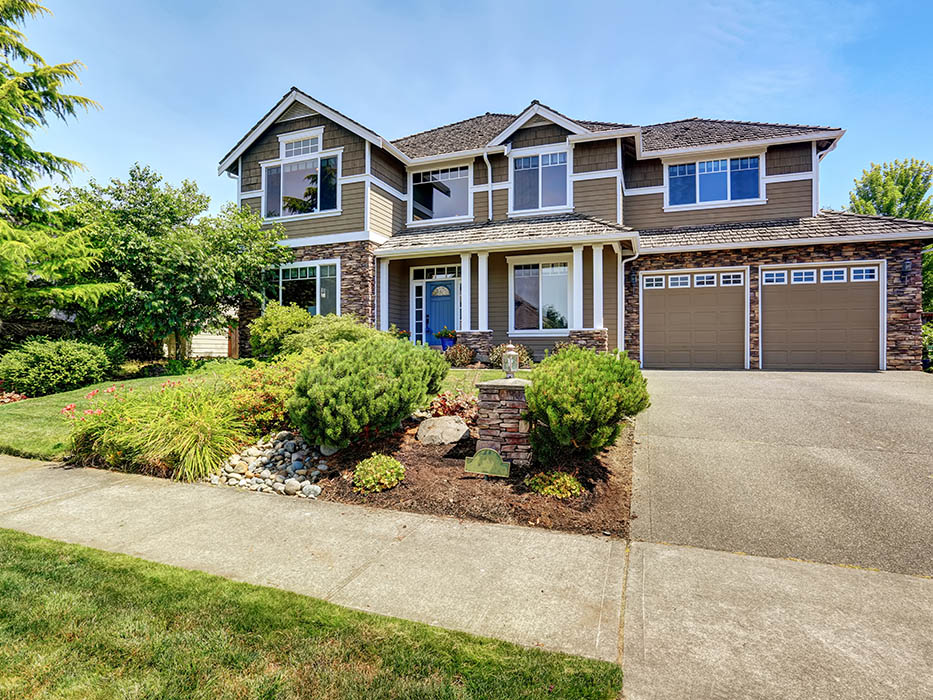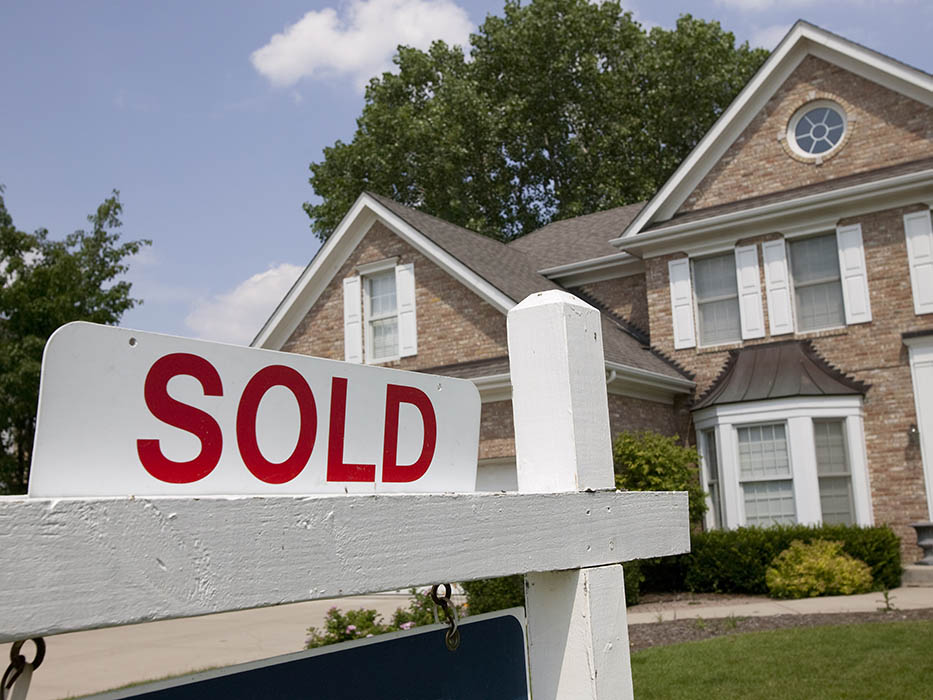Buying & Selling Your Home Made Easy
At Texas Realty, we know how stressful the real estate market can be. With so many stages of the process to work through, it can be easy for things to fall through the cracks. Let the experienced real estate agents at Texas Realty help you find your dream home or office space you need. We can also help with ranch land, lake houses, and more.
If you’re ready to get started, contact us today to speak with our team! Or learn more about the buying and selling process below.
Know Your Value!
Visit the Brown County Appraisal site to learn more about the value of your property. This resource is a good tool for both homebuyers and sellers, because it is always useful to know the real value of a property you’re interested in purchasing.

Tips for Sellers
If you’re trying to sell your home or commercial property, there are many things to consider. Although some homeowners opt for an FSBO (for sale by owner), it is recommended to enlist a realtor to ensure you get the best market value for your property. With access to real estate and marketing tools that are otherwise unavailable to the public, a realtor can help you to close on the sale or receive more offers for your property.
Here are several helpful tips for sellers.
Beat the competition with condition
Consider painting and cleaning carpets. Also, get as many of the repairs done as you can. Make sure that the little nicks and scratches, doorknobs that don’t work, and faulty handles are all repaired before you start showing your home.
De-personalize
Pretend you’re moving out. Take all the things that make your home “your” personal sanctuary (family photos, collectibles, etc.), pack them up and put them in storage. Buyers want to visualize your house being their house – and it’s difficult for them to do that with all your personal items marking the territory as yours.
De-clutter
Pack up all your belongings, including anything that is sitting on top of a countertop, table, or other flat surfaces. Give away what you can, throw away as much as possible of what remains, and then pack the rest to get it ready to move.

Curb appeal
Stage the exterior with fresh paint, immaculate landscaping and even outdoor furniture. This will allow buyers to picture themselves enjoying the backyard by entertaining and spending time outside.

Access is essential
Homes that don’t get shown don’t get sold. Make it easy for agents to get their clients into your home. Be open to flexible scheduling and impromptu showings.
Get real about pricing
Today’s buyers are educated about the comparable sales in the area, which can heavily influence the fair market value of your home. Buyers also know the type of position they’re in, so it’s important to make sure your home has a competitive edge in the market.
Have your broker or agent get you the sales prices of the three most similar homes that have sold in your area in the last month or so, and then try to go 10-15% below that when you set your home’s list price. The homes that look like a great deal are the ones that get the most visits from buyers, and on occasion they even receive multiple offers – and bidding wars do still exist!
Tips for Buyers
Buying a home can be an overwhelming task, especially if it’s your first time in the real estate market. Even if this is not your first home, the market can still seem like a scary place to navigate. With so many property types and financial fees to understand, there can be a lot to handle. To make this process just a little bit easier, we’ve provided some tips for buying a home. Whether it’s your first home or your third, let us help you get through it all with a smile!
Prepare to buy a home
There are a lot of things you should do before you find a home. Start by putting together an index of must-haves and get a feel for what neighborhoods you'd like to live in. This is also a good time to start planning your budget.
Your mortgage payment should be less than 1/3 of your net monthly income. This will help you to get pre-qualified for a loan, which you should do before you start going to showings and looking at homes. Our realtors can even give you some names and numbers of reliable lenders that can help you. It makes things easier when sellers know that you are pre-qualified to buy a home.
Get in touch with one of our agents at Texas Realty
This is where our agents can help. After planning a time to get together, we will talk about why you want to buy a home and get an idea of your future plans. We will talk about everything from neighborhoods to the loan process.

Start looking
After our first meeting, our agent will begin looking for homes on the market that are suited to your needs and preferences. We’ll research many of the homes and throw out the duds, and then we'll schedule appointments to tour the homes at a time that's convenient for you.
Find the house of your dreams
Our team is confident that we’ll find you the house of your dreams in Lake Brownwood. When we do, our agent will meticulously create your home purchase offer. The offer will be tailored with your needs in mind, including a lot of contingencies. A few examples are getting financing, completing the inspection, and a clean title.
When we send in your purchase offer, you'll likely need to present “earnest money.” This is a cash deposit given to the home seller to secure an offer to purchase the property, and it's typically put towards the closing costs. If the offer is accepted, we should close on the home about 30-60 days after. This allows sufficient time for your mortgage financing.
Negotiate the deal
Most contracts aren't closed on the beginning offer, and it is also common to receive a counteroffer. Don't let this discourage you. We'll consider whether it’s best to agree to the counteroffer, propose our own counteroffer, or decline the seller's offer and move on.
How aggressively we negotiate the contract depends on the state of the market. We'll also work within your financing constraints. At the end of the day, we'll put together a deal that's best for you.
Secure your loan
Upon completion of the contract, you'll start working with your lender to close the loan. If you're already pre-approved for a loan, this shouldn't be a long process at all. However, you'll want to keep in close contact with your lender. Plus, our agent will be sure to take care of all the property information your mortgage lender will need to close the loan.

Close the deal
You'll get a Good Faith Estimate (GFE) of closing costs from your lender within three days of taking your loan application. The estimate is based on the loan amount. RESPA requirements mandate that it must contain all closing costs and fall within a tight range of accuracy, and our agent will review the estimate to let you know if it all looks permissible.
Then it's time to close on your home. This will most often happen at a title company or escrow office and should be a smooth and relaxing affair.
Move in
Congratulations! Now you can move into your new home!
Applying for a Loan
Let Texas Realty help you to finance your new home
When buying a home, the loan application process can be stressful for a lot of people, but it doesn't have to be. Our agents have excellent relationships with many lenders in the Lake Brownwood area, and we can help make the loan application process a breeze.
-
Put together a list of questions about your loan program.
If you want to learn more about the advantages and disadvantages of the different financing options available to you, be sure to have a list of questions with you. One of our lenders or agents will assist you in understanding the advantages and disadvantages of both programs, because it can be a challenge to know the differences between both fixed and adjustable rate mortgages.
-
Decide when to lock.
Locking in the rate denotes that your mortgage lender commits to the mortgage interest rates for the loan – usually at the time the loan application is presented. By floating the rate, you can lock the rate at any time between application and the issuing of closing documents. Those who elect to float presume that the interest rates will decline soon.
-
Determine if you want to pay additional points to lower your rate
If you elect to pay additional points to lower the interest rate of your loan, you'll pay for them in cash at the time of closing. Every point is 1 percent of the mortgage loan.
-
Gather your paperwork
Getting a loan requires a lot of paperwork, so it’s important to take some time to get your documentation together.
First-Time Buyers
Your decision to buy a home is both a sound financial decision and a commendable achievement. At Texas Realty, we can help with farm and ranch, residential, commercial, and lake property real estate transactions. When you’re buying your first home, let our team make the process much easier.
What we do for you…
- We will lead you through every step of the exciting home buying process.
- We will help you define your “wish list” of features you want in your home, your neighborhood and your school district.
- We will walk you through the mind-boggling financial details associated with buying a home, including understanding the various mortgages and home buying programs available to you.
- We will monitor all new listings and alert you to new houses as soon as they are put on the market.
- We will eliminate the stress involved with buying a home by putting our years of real estate experience to work for you.
Plus, we will…
- Work at no cost to you!
- Provide detailed listing information not available to the public.
- Negotiate the deal to save you money.
- Guide you through the avalanche of paperwork.
- Commit our time and energy to finding you the right home.
Home Buyer Checklist
| Home Buyer checklist | 1 | 2 | 3 |
|---|---|---|---|
| Property Address | |||
| Asking Price | $ | $ | $ |
| Real Estate Taxes | $ | $ | $ |
| The Neighborhood | |||
| Near Work | |||
| Near Schools | |||
| Near Shopping | |||
| Near Expressways | |||
| Near Public Transportation | |||
| Near Doctors / Dentists | |||
| Near Churches | |||
| Garbage Collection | |||
| Street Lights | |||
| Sidewalks | |||
| Streets / Alleys Well Maintained | |||
| Traffic Volume | |||
| Parks | |||
| Neighbor's Property Well Maintained | |||
| All Utilities Installed | |||
| Neighborhood / Restrictions | |||
| Near Trains / Airports | |||
| Area Zoned Residential | |||
| Near Industry | |||
| Proposed Special Assessments | |||
| Environment Concerns / Influences | |||
| The House | |||
| Age of House | |||
| No. of Stories | |||
| Wood Frame | |||
| Brick Frame | |||
| Wood & Brick Frame | |||
| Aluminum Siding | |||
| Roof Condition | |||
| Foundation Condition | |||
| Overall Exterior Condition | |||
| Garage Size | |||
| No. of Bathrooms | |||
| No. of Closets | |||
| No. of Bedrooms | |||
| Oil Heat | |||
| Gas Heat | |||
| Electric Heat | |||
| Hot Water Heat | |||
| Insulation | |||
| Central Air Conditioning | |||
| Energy-Conservation Features | |||
| Age of Heating System | |||
| Age of Water Heater | |||
| Capacity of Water Heater | |||
| Age of Electrical Wiring | |||
| Plumbing Condition | |||
| Estimated Water Bill | $ | $ | $ |
| Estimated Heating Bill | $ | $ | $ |
| Estimated Electric Bill | $ | $ | $ |
| Living Room | |||
| Fireplace | |||
| Separate Dining Room | |||
| Family Room | |||
| Drapes - No. of Rooms | |||
| Carpeting - No. of Rooms | |||
| Kitchen Eating Area | |||
| Refrigerator | |||
| Stove / Oven (Gas / Electric) | |||
| Garbage Disposal | |||
| Dishwasher | |||
| Broken Windows | |||
| Storm Windows / Screens | |||
| Washer / Dryer Outlets | |||
| Laundry Space | |||
| Finished Basement | |||
| Attic | |||
| Sump Pump / Drainage | |||
| Connected to Sewer System | |||
| Patio | |||
| Backyard Fence | |||
| Landscaping | |||
| Property Boundaries | |||
| Security (dead bolts, detectors) | |||
| Building Code | |||
| Compliance | |||
| Ability to Expand / Enlarge House |
Closing Costs
Expected closing costsThere are certain standard costs accompanying closing the sale of a house. These expenses are commonly divided between the buyer and seller, as directed in the sales contract. Many are universal, but there are nuances to each, so you'll want a real estate expert in Texas to help direct you through the transaction.
Closing costs that are loan-related
- Loan-Related Closing Costs
- Loan Origination Fee
This covers the administrative expenses in setting up and processing the loan. The loan origination fee may be a percentage of the mortgage amount.
Points (optional)
An option for the home buyer is to pay points to lower the interest rate at which the loan will be repaid. Each point equals 1 percent of the mortgage amount. For example: on a $150,000 loan, 1 point would equal $1,500.
Appraisal Fee
The fee for having the house appraised may be incorporated into the closing costs, or payment may be required by the lender at the time the loan application is submitted.
Interest Payment
Typically, the buyer is required to pay interest on the mortgage loan to cover the time between the closing date and when the first mortgage payment period begins. For example: If closing is on May 15, your first monthly payment begins to accrue interest on June 1 with your first mortgage payment due July 1. At closing, an interest payment covering the accrual period between May 15 and May 31 may be required.
Escrow Account
At closing, a payment may be required to fund the escrow account if the lender is paying home insurance, property taxes and/or other expenses out of the escrow account.
At closing, these taxes are usually collected:
- Property Taxes
- Transfer Taxes and Recording Fees
Property Taxes
This is the one closing cost that is often prorated between the buyer and seller. If the seller has already paid the annual property taxes, the buyer typically reimburses the seller for the period in which the buyer will be occupying the property. Likewise, if the taxes have not yet been paid, the seller typically reimburses the buyer for the period in which the seller occupied the property.
Transfer Taxes and Recording Fees
This is the cost for transferring ownership of the property and recording the purchase documents. The fee is often calculated as a percentage of the sales price.
Insurance fees due at closing:
- Homeowners Insurance
- Flood or Quake Insurance (optional)
- Private Mortgage Insurance (PMI) (optional)
- Title Insurance
How Escrow Works
When you're closing on your new home, a neutral third party (known as the escrow holder or the escrow agent) is used to ensure the process will close correctly and within a specific period.
The escrow company makes sure that all terms and conditions of the seller's and buyer's agreement are completed prior to the sale being completed. This includes receiving funds and documents, finishing required forms, and getting the release documents for any loans or liens that were cleared with the transaction, and ensuring that you have a clean title to your place before the final price is fully paid.
Escrow agents look for the following legal documents:
- Requests for payment for various services to be paid out of escrow funds
- Loan documents
- Tax statements
- Fire and other insurance policies
- Title insurance policies
- Terms of sale and any seller-assisted financing
Closing on the house takes place when all the procedures of the escrow are done. All expenses like title insurance, inspections and real estate commissions are paid. Title to the house is then transferred to you as new owner and correct title insurance is issued as outlined in the escrow instructions.
The escrow agent gets a payment when the closing is complete. You'll know when it's time to submit the form of payment.
The Escrow Holder Will:
- Prepare escrow guidelines
- Petition title research
- Meet lender's guidelines as written in the escrow agreement
- Intake payments from the buyer
- Prorate tax, interest, insurance and other fees according to guidelines
- Record deeds and other documents as instructed
- Obtain title insurance policy
- Close escrow when all terms of agreement between seller and buyer are met
- Disburse funds and finalize instructions
The Escrow Holder Won't:
- Offer advice - the escrow agent stays at an impartial, third-party status
- Offer opinions about the outcome of your taxes
Mortgage Escrow Account
A Mortgage Escrow Account is established to make payments for recurring expenses while there is a loan on the house. Escrow Accounts are contributed to monthly by the home buyer (who is now the homeowner), but there is also a lump sum that goes into the account at closing.
This is a quick run-down of the escrow process. Your specific process will be unique depending on your bank and your escrow company.
Looking to Buy?
Are you looking to buy a house? Let us help you. Just fill out as much of the information as you want in the form titled “Your Information” on this page and we'll get right back to you, with no obligation to you. We guarantee your privacy.

